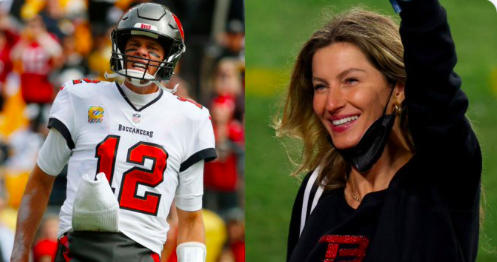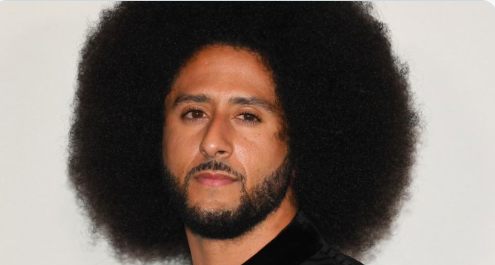Kris Bowers. Have you heard of him?
Well, even if you dont know that name from a rusty nail, youve likely heard one of his compositions. If the sounds that he scored to underpin the ups and downs of the controversial Netflix series Dear White People are any indication, then you likely not only heard his groove but nodded your head uncontrollably to the rhythm.
As a composer, Bowers has proven his acumen repeatedly. Recently, The Shadow League spoke with the musician about what goes into giving a film or a series its musical soul, his own music career and much more.
It Was Me
Provided to YouTube by Sony Music Entertainment It Was Me Kris Bowers Dear White People (A Netflix Original Series Soundtrack) 2017 Lions Gate Entertainment Inc. Released on: 2017-04-28 Mixing Engineer, Recording Engineer: Stephen Kaye Auto-generated by YouTube.
The Shadow League: How does the process to score a film or series begin?
Kris Bowers: It all begins with a conversation with the director to decide what type of music they want in the film. It might be a vague description or references to other films that they loved. I might write some demos that Ive seen or some ideas. We tend to go back and forth until we decide what the palate is.
Are we working with an orchestra or is it mainly piano music, or is it like an electronic sound, and so on and so forth. Once we settle on that, it kind of becomes easier for me to decide what sounds will translate that. If I decide that there are little to no strings in a score, then I need to figure out some other way to make something sound sad or emotional or something like that.
You’re Odysseus
Provided to YouTube by Sony Music Entertainment You’re Odysseus Kris Bowers Dear White People (A Netflix Original Series Soundtrack) 2017 Lions Gate Entertainment Inc. Released on: 2017-04-28 Mixing Engineer, Recording Engineer: Stephen Kaye Auto-generated by YouTube.
TSL: Do you actually get to see any of the scenes before scoring them?
KB: I get to see some of it. A lot of times theyve pretty much decided what it is. For Dear White People, for example, we have a spotting session for an episode and itll be a spot where theyve already tried out some music and they decide we want something that sounds like this, or we have a spot with no music and have a conversation about what spot the music should come in.
With Dear White People specifically, we decide if thats going to be a track that will be selected. Thats a different persons job, the music director. If its something thats composed specifically for the picture, then thats something that I would do. Those are the conversations we would have before I go in and do my work.
Sam & Gabe (Do You Want This?)
Provided to YouTube by Sony Music Entertainment Sam & Gabe (Do You Want This?) Kris Bowers Dear White People (A Netflix Original Series Soundtrack) 2017 Lions Gate Entertainment Inc. Released on: 2017-04-28 Mixing Engineer, Recording Engineer: Stephen Kaye Auto-generated by YouTube.
TSL: Is there a difference in process between composing music for a particular character as a theme and composing music to set a mood for a scene?
KB: For Dear White People, sometimes when we first meet a character we try to establish their theme pretty clearly. But then the rest of that episode I try to only use it in a scene thats material to them. So, every piece of music that you hear that I wrote is actually pulling from that same characters theme.
But the theme is a little more masked and the main purpose is to give a little more emotional support to the scene, to the story, to whatevers happening there. Sometimes, its meant to provide an emotional undercurrent and sometimes its just to let the audience know that this is a person were supposed to be focusing on.
They’re Gonna Hate Me
Provided to YouTube by Sony Music Entertainment They’re Gonna Hate Me Kris Bowers Dear White People (A Netflix Original Series Soundtrack) 2017 Lions Gate Entertainment Inc. Released on: 2017-04-28 Mixing Engineer, Recording Engineer: Stephen Kaye Auto-generated by YouTube.
TSL: What were some of the challenges for composing music for an animated film like The Snowy Day, which you won a Daytime Emmy for, and something like Elaine Stritch, a documentary which features Alec Baldwin and Tina Fey?
KB: For The Snowy Day, just to clarify, that was with Laurence Fishburne and Angela Bassett. Its an animated kids special that we did for Amazon. That was completely up to me because the creators didnt have anything music in mind. With that, there wasnt a conversation that I had to try to decipher and translate into music.
So, if there was a Christmas special and its for children, then theres definitely going to be some sleigh bells somewhere and probably some fun sounding orchestral parts, but the one thing with that was they really kept stressing this idea of having an urban sound. Not urban as in Hip-Hop, but urban because they wanted something that felt a little bit more like this kid running through New York City as opposed to Polar Express or something like that. I incorporated almost like a Motown-type of feel to it as well because the film and the book take place in the early ’60s. So, something like that can be a lot of fun trying to add that in with the orchestra.”
TSL: Some people may not recognize your name, but youve put together quite the catalog of collaborations with big name artists. Aretha Franklin, Jay Z and Kanye and Q-Tip to name a few. How to do you balance the two?
KB: Its kind of been going back and forth. Film scoring was always something I wanted to do. But I first went to Julliard for Jazz piano, then I started playing with Jazz artists but I was always into other styles of music. Like anything, once the momentum starts going on one side, then its important to kind of follow that.
As film scoring started to pick up and things started to happen, it was important to try to focus on that. But the focus to do more of the performing and songwriting is there. Trying to balance out the two has been tough, but Ive been able to focus on each for a year or two back and forth rather than just from project to project.



